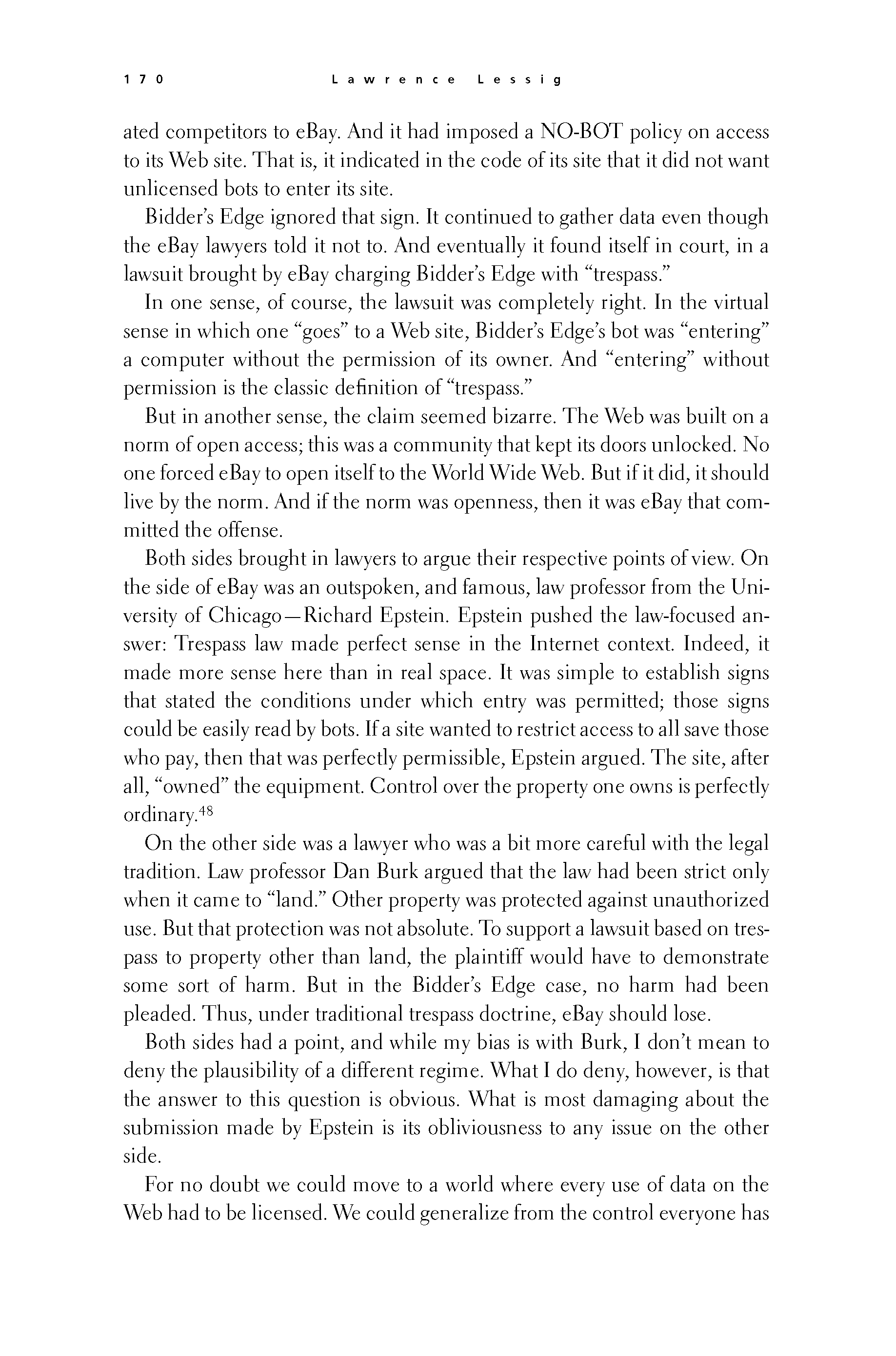 p169 _
-chap- _
toc-1 _
p170w _
toc-2 _
+chap+ _
p171
p169 _
-chap- _
toc-1 _
p170w _
toc-2 _
+chap+ _
p171
ated competitors to eBay. And it had imposed a NO-BOT policy on access
to its Web site. That is, it indicated in the code of its site that it did not want
unlicensed bots to enter its site.
Bidder's Edge ignored that sign. It continued to gather data even though
the eBay lawyers told it not to. And eventually it found itself in court, in a
lawsuit brought by eBay charging Bidder's Edge with "trespass."
In one sense, of course, the lawsuit was completely right. In the virtual
sense in which one "goes" to a Web site, Bidder's Edge's bot was "entering"
a computer without the permission of its owner. And "entering" without
permission is the classic definition of "trespass."
But in another sense, the claim seemed bizarre. The Web was built on a
norm of open access; this was a community that kept its doors unlocked. No
one forced eBay to open itself to the World Wide Web. But if it did, it should
live by the norm. And if the norm was openness, then it was eBay that com-
mitted the offense.
Both sides brought in lawyers to argue their respective points of view. On
the side of eBay was an outspoken, and famous, law professor from the Uni-
versity of Chicago -- Richard Epstein. Epstein pushed the law-focused an-
swer: Trespass law made perfect sense in the Internet context. Indeed, it
made more sense here than in real space. It was simple to establish signs
that stated the conditions under which entry was permitted; those signs
could be easily read by bots. If a site wanted to restrict access to all save those
who pay, then that was perfectly permissible, Epstein argued. The site, after
all, "owned" the equipment. Control over the property one owns is perfectly
ordinary.[10-48]
On the other side was a lawyer who was a bit more careful with the legal
tradition. Law professor Dan Burk argued that the law had been strict only
when it came to "land." Other property was protected against unauthorized
use. But that protection was not absolute. To support a lawsuit based on tres-
pass to property other than land, the plaintiff would have to demonstrate
some sort of harm. But in the Bidder's Edge case, no harm had been
pleaded. Thus, under traditional trespass doctrine, eBay should lose.
Both sides had a point, and while my bias is with Burk, I don't mean to
deny the plausibility of a different regime. What I do deny, however, is that
the answer to this question is obvious. What is most damaging about the
submission made by Epstein is its obliviousness to any issue on the other
side.
For no doubt we could move to a world where every use of data on the
Web had to be licensed. We could generalize from the control everyone has
[[170]]
p169 _
-chap- _
toc-1 _
p170w _
toc-2 _
+chap+ _
p171